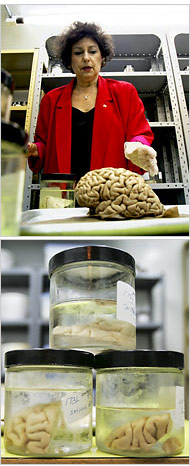Talking on cell phones while driving is more distracting than talking to passengers
Here is an interesting article describing research on the distraction caused by talking on cell phones while driving. The important thing is the comparison to talking with a passenger in the car.
Want to drive safely? Talking to passengers may be okay, but talking on the phone isn’t
Fifty percent of the drivers who were talking on the cell phone missed the exit, while only 13 percent of the drivers talking to the passengers did, a number not significantly different from the control condition with no conversation. What’s more, the researchers analyzed the substances of the conversations, and found that in conversations with passengers, the discussion shifted to the traffic / driving situation nearly twice as often than in conversations on the cell phone.

Technorati Tags: driving, cell, distraction, research
Talking on cell phones while driving is more distracting than talking to passengers Read More »


 New research could explain why some comedians are funnier when you’re surrounded by laughing people instead of sitting by yourself.
New research could explain why some comedians are funnier when you’re surrounded by laughing people instead of sitting by yourself.  Scientists who study relationships have long focused on how couples handle love’s headaches, the cold silences and searing blowups, the childcare crises and work stress, the fallouts over money and ex-lovers. But the way that partners respond to each other’s triumphs may be even more important for the health of a relationship, suggests a paper appearing in the current issue of The Journal of Personality and Social Psychology. The study found that the way a person responds to a partner’s good fortune — with excitement or passive approval, shared pride or indifference — is the most crucial factor in tightening a couple’s bond, or undermining it.
Scientists who study relationships have long focused on how couples handle love’s headaches, the cold silences and searing blowups, the childcare crises and work stress, the fallouts over money and ex-lovers. But the way that partners respond to each other’s triumphs may be even more important for the health of a relationship, suggests a paper appearing in the current issue of The Journal of Personality and Social Psychology. The study found that the way a person responds to a partner’s good fortune — with excitement or passive approval, shared pride or indifference — is the most crucial factor in tightening a couple’s bond, or undermining it.


 About 12 years ago, my son had surgery for Epilepsy that was completely successful in stopping the seizures. Here is an interesting article on advances in surgery treatments.
About 12 years ago, my son had surgery for Epilepsy that was completely successful in stopping the seizures. Here is an interesting article on advances in surgery treatments.